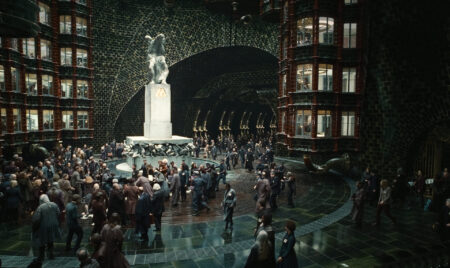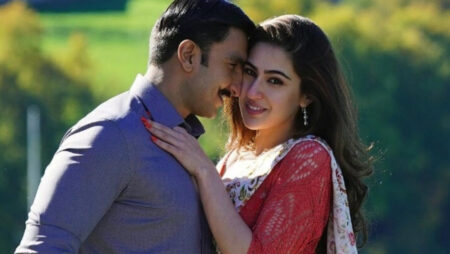The NBC show premiered first in September 2016 does the job of intermixing a light subject of comedy and heavy matter of existence and serves it on a platter filled with humane and soul-filling moments.
Taking its philosophical basis from Jean-Paul Sartre’s 1944 existentialist play – No Exit (Huis Clos), Michael Schur centres the ideology of the show’s first season around the last line of Sartre’s play – “Hell is other people”.
The protagonist is Eleanor Shellstrop, who has lived an unethical life and only in her selfish interests.
When she dies and ends in ‘Good Place’ in her afterlife, she meets the friendly supernatural being Michael, the architect of this apparent heaven.
He introduces her to other members – Chidi, an indecisive moral philosopher; Tahani, a sophisticated and highbrow socialite and Jason, a naive amateur DJ from Florida.
The show looks at the interpersonal conflicts among characters while focusing on the more significant issue of individual growth.
The different seasons document the struggles of these people in defining the core existential concepts and the question of “what it means to be good”.
The genius of Schur lies in creating a comedy set in a fantastical afterlife whose first season builds upon the philosophy of hell and making the characters rich with complex inner lives and dimensions to their personalities.
The audience gets forced to question their preconceived notions about the world as they move through the four seasons.
The writers further intermingle ethical and absurdist theories of philosophers like Kant, Nietzsche and present these dense bookish concepts through the simplified acts of daily life.
This show can also be called a beginner’s handbook on philosophy.
The theories were shaping the story range from all periods. The influence of Greek philosopher, Aristotle’s ideas was evident when Michael said, “You fail, and then you try something else.
And you fail again and again, and you fail a thousand times, and you keep trying because maybe the 1,001st idea might work.”
As the creator says, “Aristotle was the philosopher who had a certain practice-makes-perfect thing.
The way you get better at being ethical is by doing good things over and over.”
American philosopher/ex- Harvard professor Tim Scanlon’s book What We Owe to Each Other appears in many instances in the show.
Scanlon talked about how our happiness depends entirely on our ability to make peace with those around us.
Chidi Anagonye was then only walking the path of this philosopher when he said, “I argue that we choose to be good because of our bonds with other people and our innate desire to treat them with dignity.”
One recurring theme in the show is how humans help one another be better. Even in the afterlife, they chose to focus on concepts considered “mundane”, like goodness and kindness.
The writing was never preachy when it came to handling these big questions, and the show plainly just said – ‘just be a human’.
Eighteen months into a pandemic, as we all have got more susceptible to falling into a constant state of meaningless, this show has only gained more relevance with its light-hearted portrayal of these dense concepts.
Maybe hell is other people, but people are all we have, which ultimately places us in this absurd dead-end dilemma of existence which we have to make the most sense of.













